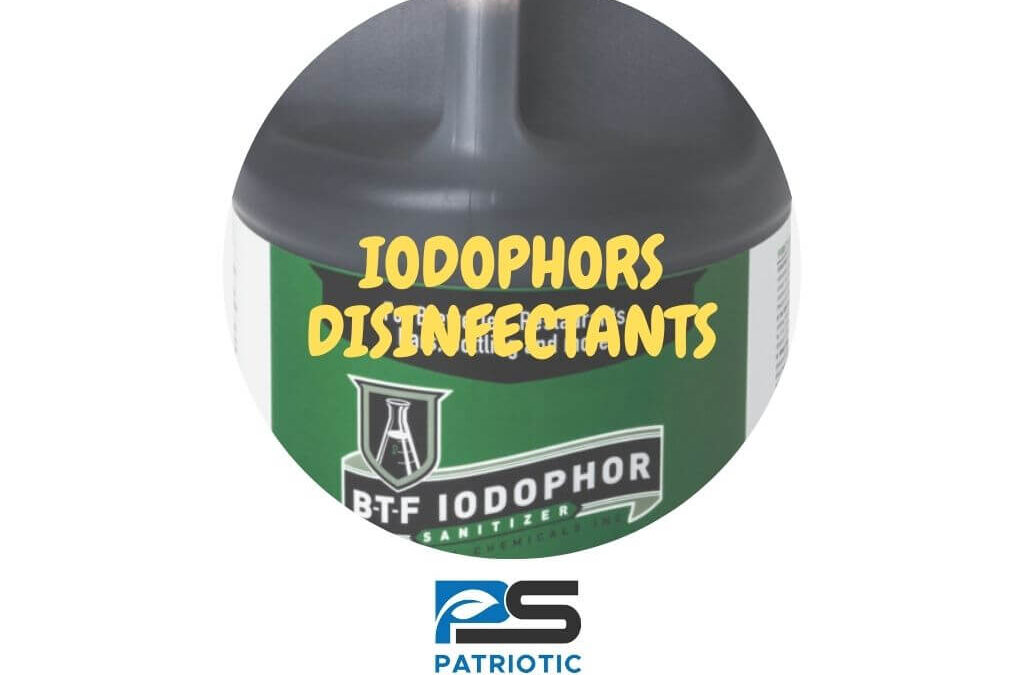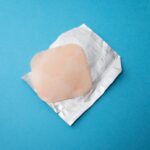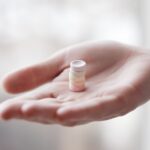Iodophors
Overview.
Iodine solutions or tinctures long have been used by health professionals primarily as antiseptics on skin or tissue. Iodophors, on the other hand, have been used both as antiseptics and disinfectants. FDA has not cleared any liquid chemical sterilant or high-level disinfectants with iodophors as the main active ingredient. An iodophor is a combination of iodine and a solubilizing agent or carrier; the resulting complex provides a sustained-release reservoir of iodine and releases small amounts of free iodine in aqueous solution. The best-known and most widely used iodophor is povidone-iodine, a compound of polyvinylpyrrolidone with iodine. This product and other iodophors retain the germicidal efficacy of iodine but unlike iodine generally are nonstaining and relatively free of toxicity and irritancy.
Several reports that documented intrinsic microbial contamination of antiseptic formulations of povidone-iodine and poloxamer-iodine caused a reappraisal of the chemistry and use of iodophors682. “Free” iodine (I2) contributes to the bactericidal activity of iodophors and dilutions of iodophors demonstrate more rapid bactericidal action than does a full-strength povidone-iodine solution. The reason for the observation that dilution increases bactericidal activity is unclear, but dilution of povidone-iodine might weaken the iodine linkage to the carrier polymer with an accompanying increase of free iodine in solution. Therefore, iodophors must be diluted according to the manufacturers’ directions to achieve antimicrobial activity.
Mode of Action
.Iodine can penetrate the cell wall of microorganisms quickly, and the lethal effects are believed to result from disruption of protein and nucleic acid structure and synthesis.
Microbicidal Activity.
Published reports on the in vitro antimicrobial efficacy of iodophors demonstrate that iodophors are bactericidal, mycobactericidal, and virucidal but can require prolonged contact times to kill certain fungi and bacterial spores. Three brands of povidone-iodine solution have demonstrated more rapid kill (seconds to minutes) of S. aureus and M. chelonae at a 1:100 dilution than did the stock solution. The virucidal activity of 75–150 ppm available iodine was demonstrated against seven viruses. Other investigators have questioned the efficacy of iodophors against poliovirus in the presence of organic matter and rotavirus SA-11 in distilled or tap water. Manufacturers’ data demonstrate that commercial iodophors are not sporicidal, but they are tuberculocidal, fungicidal, virucidal, and bactericidal at their recommended use-dilution.
Uses.
Besides their use as an antiseptic, iodophors have been used for disinfecting blood culture bottles and medical equipment, such as hydrotherapy tanks, thermometers, and endoscopes. Antiseptic iodophors are not suitable for use as hard-surface disinfectants because of concentration differences. Iodophors formulated as antiseptics contain less free iodine than do those formulated as disinfectants. Iodine or iodine-based antiseptics should not be used on silicone catheters because they can adversely affect the silicone tubing.








